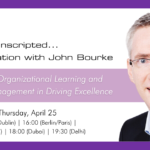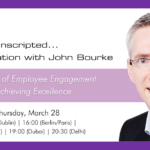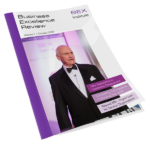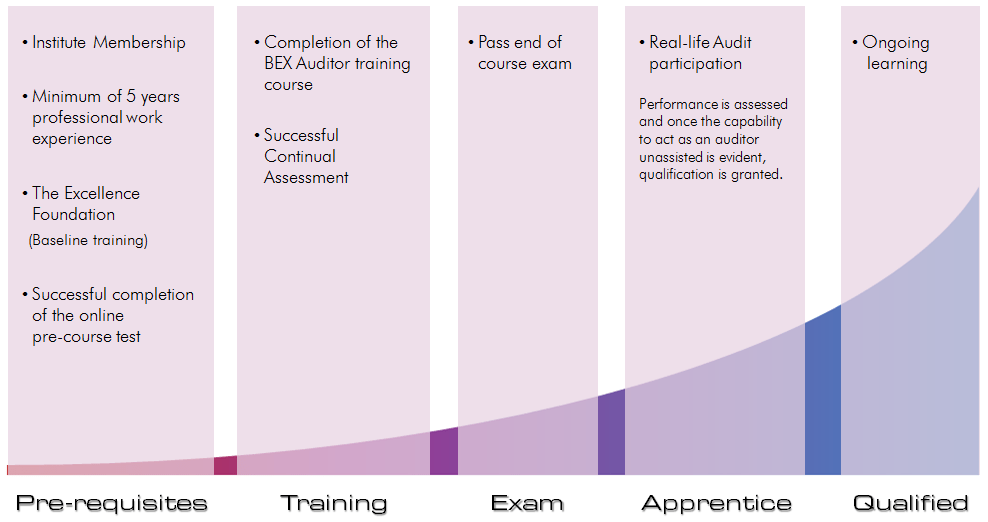Brexit is an issue that has the potential to impact not only the British and European economies but also the global market. The ongoing uncertainty, after more than 2 years of discussion, debate, and negotiation, will have to end, one way or another, as the deadline of the 29th March looms. Taking a step back, how does Brexit fair when viewed through the excellence prism?

It started with a referendum, a democratic vote. As reasonable starting point and the question put was clear – do you want to Leave or Remain in the EU? In excellence terms, a referendum is basically a perception survey on steroids. And, when we’re assessing a survey, one of the things we check is the sample – who was included? The referendum covered anyone registered to vote in the UK. That means foreign nationals, including EU citizens, living in UK could participate, so long as they were registered to vote.
But it excluded the estimated 1 million UK citizens who live and work in the EU, taking advantage of the “freedom of movement” that has been such a bone of contention and which was one of the contributing factors to triggering the referendum in the first place. Not good from an excellent perspective – that’s a relevant stakeholder group which was excluded. However, giving the difference between the “Remain” and “Leave” vote was more than 1 million, even if there had been a 100% turnout (extremely unlikely) AND all of them voted to remain (again, even in this population, extremely unlikely), whilst it might have made the margin closer, the outcome would have been the same.
The campaigns in the run-up to the vote were unlike a “normal election”, where people vote for a candidate based on their policies and the winner is then held accountable by the electorate for delivering against the promises made. In the referendum, the government wanted to remain – pretty easy to keep that promise as it effectively meant “doing nothing”. Who would deliver the “leave” vote wasn’t considered, and that’s been the problem ever since the vote to “leave” was cast.
There’s also the issue of the tactics adopted in the campaign. Probably the most memorable argument from the “Leave” campaign was plastered across the side of their bus – the claim the government could spend an extra £350 million a week on the National Health Service instead of giving it to the EU. No one is committed to delivering that promise. The “Remain” campaign adopted “Project Fear” tactics; focusing on the negatives of leaving, not the positives of staying. Neither side put forward a clear, inspiring and inclusive vision for the future; something that is a basic building block of excellence.
The “Irish backstop” issue that now dominates the news wasn’t even a consideration during the campaign. But the origins of the “backstop” are in the Good Friday Agreement; a legally binding agreement that makes a hard border illegal. Understanding and complying with the law is a basic requirement; it’s not even on the excellence scale.
Finally, once the political dust settled, the UK had a Government committed to delivering Brexit. Red lines were drawn and negotiations started with the EU. And those “red lines” have become a mantra over the last 2 years, along with “delivering the result of the referendum”. Whilst the result of the referendum cannot be debated, the “red lines” that have defined the deal that’s now stuck in Parliament can be. Where did those red lines come from?
They weren’t in the referendum question – that was a binary choice. They were in the Conservative Party manifesto of the 2017 election but that failed to return a majority in the House of Commons, let alone attract a majority of the public vote. The UK is now facing the choice of a deal that does not deliver what the majority of people want or a no-deal that not only damages the UK economy but also has significant impact on the EU, especially Ireland. People are being given a “lose-lose” option.
Excellence means creating “win-win” situations where no stakeholders opinion is ignored. Achieving a “win-win” means compromising; finding a middle-ground where no one feels like a loser. Whilst it might be too much to expect “excellence in politics”, is it too much to ask for a little bit once in a while?

















“Neither side put forward a clear, inspiring and inclusive vision for the future”, that is correct.
A referendum is a democratic tool that can be used to select decision makers (be it a president, party, or government), rather than making decisions.
Try to imagine holding a global referendum about “shall we earth human beings actively contact alien intelligent beings”. A majority of people would be making an unknown decision, which only less than 0.01% of them might understand “what” it is about, “how” it will be done, and “what” will be happen consequently. It turns out that the powerful media influences people. This is not democracy, its gambling.